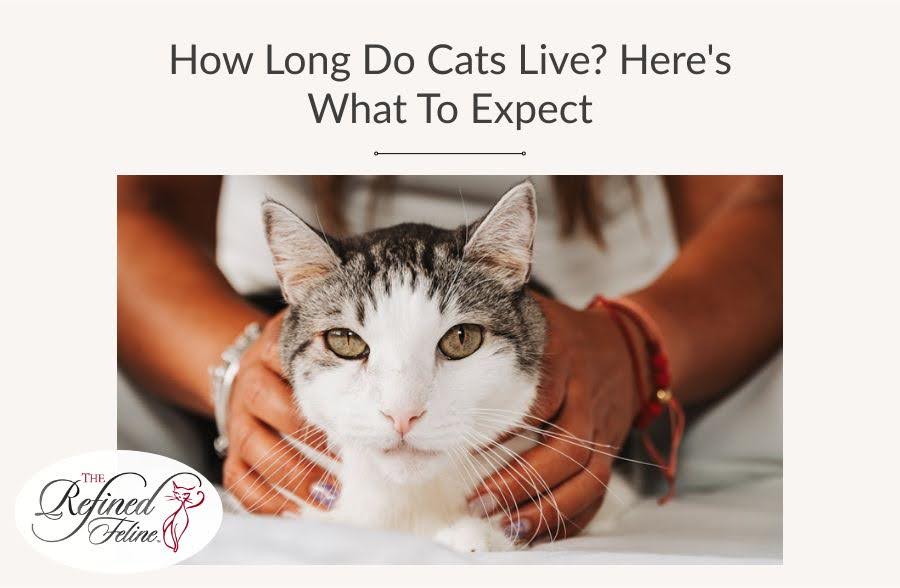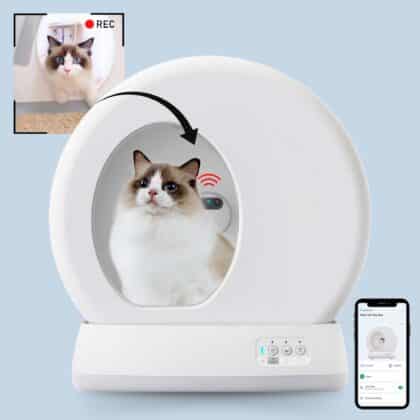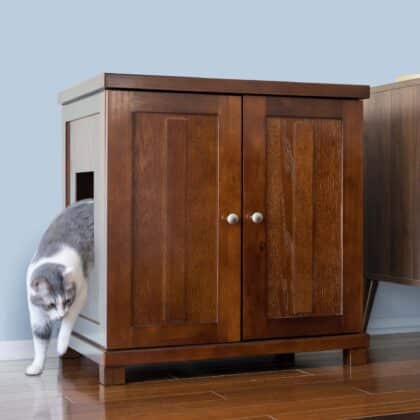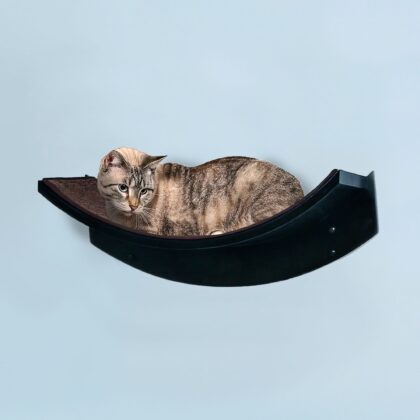
How Long Do Cats Live? Here’s What To Expect
When you bring a cat into your home, they quickly become a part of your family. You love their funny habits, their soft purrs, and the way they curl up on your lap. As you watch them grow, it’s natural to wonder, how long do cats live?
We all wish our furry friends could live forever. While that’s not possible, the good news is that you have a lot of power to help your cat live a long, happy, and healthy life. This guide is your step-by-step journey to understanding your cat animal lifespan and what you can do to make the most of your years together.
What is a Cat’s Lifespan?
A cat’s lifespan is the number of years it lives, but it’s not just one set number. It’s a range that can change based on many things, like their health, where they live, and the care they get. The average lifespan of a cat is about 13 to 17 years, but many cats live well into their 20s with good care.
Think of it like this: imagine two cats. One lives inside, eats healthy food, and goes to the vet. The other lives outside and has to find its own food. The indoor cat has a much better chance of living a longer life because its owner is helping it stay safe and healthy. Thanks to better pet care and food today, cats are living longer than ever before.
What Decides How Long a Cat Lives?
The secret to a long cat life expectancy isn’t really a secret at all. It’s a mix of good choices, loving care, and a little bit of luck. Let’s look at the biggest factors influencing cat lifespan.
The Great Indoors: Indoor vs. Outdoor Cat Lifespan
Where your cat lives is one of the biggest factors in how long they will live. The difference between an indoor vs outdoor cat lifespan is huge. Indoor cats are protected from many dangers. Outdoor cats face a lot of risks that can shorten their lives, such as:
- Cars and traffic Fights with other animals, like other cats, dogs, or wildlife
- Getting sick from diseases they can catch from other animals
- Bad weather, like extreme heat or cold Getting lost or stolen
Because of these dangers, the average life span of a cat that lives only indoors is often between 12 and 18 years or more. For a cat that lives mostly outdoors, the average can be as short as 2 to 5 years. Keeping your cat inside is one of the easiest ways to help them live a longer, safer life.
You Are What You Eat: Diet and Nutrition for Cats
A healthy diet is super important for helping your cat live a long time. Just like with people, what your cat eats affects their whole body. Good diet and nutrition for cats helps their organs stay healthy and keeps their immune system strong .
A big problem for cats today is being overweight. One study found that about 60% of cats are overweight or obese. This can lead to serious health issues affecting cats, like diabetes, arthritis, and heart problems .
To keep your cat at a healthy weight, it’s important to:
- Feed them high-quality cat food.
- Give them the right amount of food for their age and size. Don’t just leave a full bowl out all day.
- Make sure they always have fresh, clean water.
It’s in the Genes: Breed Differences in Cat Lifespan
Some cat breeds are known to live longer than others. This is because of their genetics. Often, mixed-breed cats, like the common Domestic Shorthair, live longer than purebred cats. This is because they have a mix of genes, which can make them healthier .
Some purebred cats that often live a long time include the Siamese and Burmese, who can live into their late teens. Some breeds that may have shorter lifespans include the Sphynx and the Maine Coon. But remember, these are just averages. Good care can help any cat live as long as possible.
A Helping Hand: The Role of Vet Care
Taking your cat to the vet for regular check-ups is one of the best things you can do for them. A vet can help you prevent problems before they start and catch any sickness early.
Important parts of vet care include:
- Vaccinations: Shots protect your cat from serious diseases.
- Spaying or Neutering: This surgery doesn’t just stop them from having kittens. It can also help them live longer by preventing certain types of cancer and stopping them from wanting to roam outside.
- Check-ups: Your vet can check your cat’s teeth, weight, and overall health to make sure everything is okay.
A Happy Home: Environmental Factors for Cats
A cat that feels safe and happy will be less stressed, and less stress can lead to a longer life . The environmental factors for cats in your home can make a big difference.
To make your home a happy place for your cat, you can:
- Give them fun toys to play with.
- Have scratching posts for them to stretch and scratch on.
- Set up a comfy spot near a window where they can watch the world outside.
- Give them cozy places to sleep.
A fun and safe home keeps your cat’s mind and body active, which is great for their health.
The Stages of a Cat’s Life
Cats go through different life stages, just like people do. Knowing what stage your cat is in can help you give them the best care.
Kitten (Birth to 1 Year)
This is the time when your cat grows the fastest. Kittens are full of energy and love to play and learn. During this stage, it’s important to feed them special kitten food that helps them grow strong. This is also the best time to get them their first shots and have them spayed or neutered .
Young Adult (1 to 6 Years)
Your cat is in their prime during these years. They are fully grown but still love to play. They should switch from kitten food to adult cat food. It’s important to watch how much you feed them to keep them from gaining too much weight .
Mature Adult (7 to 10 Years)
Your cat might start to slow down a little bit at this age. They are like a person in their 40s or 50s. They might sleep more and play less. It’s important to make sure they are still getting exercise and eating the right amount of food to stay at a healthy weight.
Senior (11 to 14 Years)
Now your cat is a senior citizen! They are like a person who is 70 years old. They might need more rest, but they still need fun things to do to keep their minds sharp. Food puzzles are a great way to keep them active. Your vet might want to see them more often to check for any health problems.
Geriatric (15+ Years)
Any cat that lives past 15 is a super senior! Some cats at this age are still active, while others just want to nap in a sunny spot. You will need to watch them closely for any changes in how they act, eat, or use the litter box. Any change could be a sign of a health problem.
A Long and Happy Life Together
The question of how long do cats live has a hopeful answer. While we can’t know the exact number of years we’ll have with our furry friends, we have a lot of power to make those years long and happy. By making simple choices like keeping them safely indoors, feeding them a healthy diet, and making sure they see a vet for regular check-ups, you are giving them the best chance at a long life. Every purr, every playful pounce, and every quiet nap on your lap is a gift. Cherishing these moments and providing the best care you can is the secret to a wonderful life together, for however long that may be.
Key Takeaways
- The average life span of a cat is 13-17 years, but they can live much longer with good care.
- Indoor vs outdoor cat lifespan is very different. Indoor cats live much longer because they are safer.
- Good diet and nutrition for cats and keeping them at a healthy weight is key to a long life.
- Regular vet visits for check-ups and shots can prevent and catch health issues affecting cats early.
- Spaying or neutering your cat can help them live a longer, healthier life.
- A safe, happy, and fun home reduces stress and is one of the most important environmental factors for cats.
Frequently Asked Questions
1. What is the average lifespan of a cat?
The average lifespan of a cat is usually between 13 and 17 years . But this is just an average. Many things, like their diet, whether they live inside, and their vet care, can change this. Some lucky cats can live to be 20 years old or even older.
2. Do indoor cats really live longer than outdoor cats?
Yes, they really do. The indoor vs outdoor cat lifespan is very different. Indoor cats are safe from dangers like cars, fights with other animals, and getting sick from diseases outside. An outdoor cat’s life can be much shorter because of these risks.
3. What are the most common health issues affecting cats’ lifespans?
Some of the most common health issues affecting cats as they get older are kidney disease, diabetes, thyroid problems, and dental disease. Being overweight can also cause a lot of health problems. Regular vet check-ups can help catch these problems early.
4. Does spaying or neutering my cat help it live longer?
Yes, it does! Spaying (for female cats) or neutering (for male cats) can help your cat live a longer and healthier life. It lowers the risk of some types of cancer. It also makes cats less likely to roam outside, which keeps them safe from outdoor dangers.
5. Which cat breeds live the longest?
There are some breed differences in cat lifespan. Mixed-breed cats often live a very long time. For purebreds, some breeds known for a long cat lifespan are the Siamese and Burmese. Breeds like the Sphynx may have shorter average lifespans .
6. How can I tell if my cat is getting old?
You might notice your cat slowing down, sleeping more, or not cleaning themselves as well as they used to. Their eyes might look a little cloudy, or their fur might not be as shiny. But these can also be signs of a health problem, so it’s always best to talk to your vet if you notice any changes.










